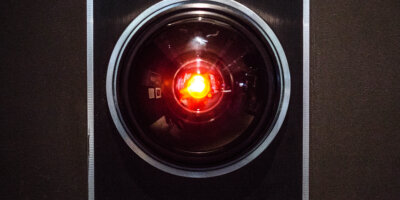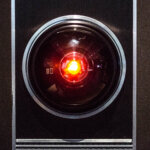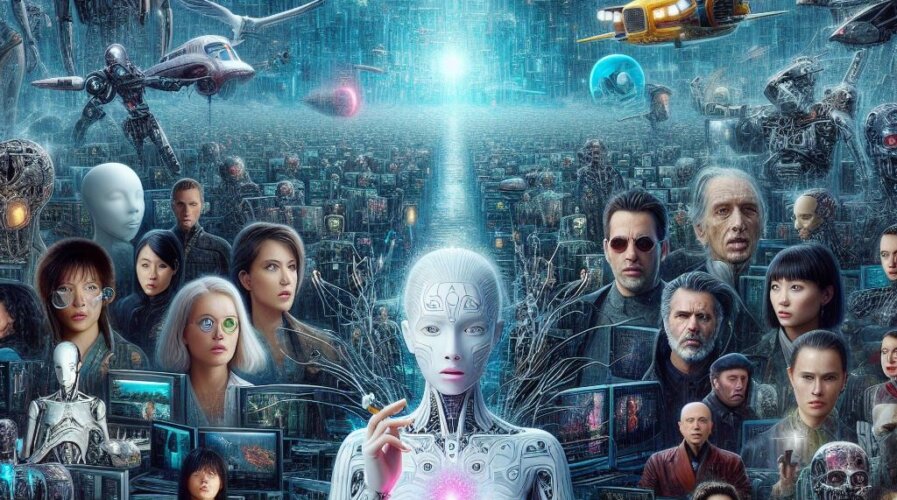
AI-generated films may soon dominate the industry. (Image generated by AI).
AI in the film industry: still a long way to go
• AI in the film industry is controversial, but probably an inevitable part of the future.
• Are there ways of using AI in the film industry that doesn’t threaten human jobs?
• And if there are, what’s the percentage in using the new technology?
AI in the film industry has been a controversial process. While film companies realize the potential of AI, especially in terms of money they can save and the spectacle they can deliver, those working in the film industry feel otherwise.
In fact, writers, actors and other employees of the film industry protested the use of AI in film in 2023. The protest, which was also one of the longest in the industry, not only called for better salaries but also a limit to the use of AI in the industry, especially when it came to scripting, and to licensing the AI-generated image or performance of an actor.
But why exactly were actors and writers worried about AI in the film industry? Since generative AI started gaining popularity, some have begun using the technology to develop scripts for the industry. The capabilities of generative AI can be adopted for various purposes in filmmaking.
Apart from generating scripts, AI in filmmaking can add special effects, create realistic animations, edit videos, and more. Here are some examples of how AI is impacting the film industry:
- AI can help filmmakers with the process of screenwriting, by generating plot ideas, dialogues, characters, and even entire scripts. For instance, an AI system called Benjamin wrote a short sci-fi film called Sunspring, which was screened at the Sci-Fi London Film Festival in 2023.
- AI can also help filmmakers with pre-production tasks, such as casting, location scouting, and budgeting. For example, an AI tool called ScriptBook can analyze a script and predict its box office potential, genre, audience demographics, and optimal casting choices.
- AI can enhance the quality and efficiency of film production, by using computer vision, machine learning, and deep learning techniques to create realistic visual effects, animations, and CGI. The biggest example of this is deepfake. Deepfake can swap the faces of actors in a video, creating convincing impersonations or transformations.
- AI can also help filmmakers with post-production tasks, such as editing, coloring, and sound design. AI tool called Lumen5 can automatically create video summaries from text articles, using natural language processing and computer vision.
- AI can also create original music for films, by using generative algorithms that can compose melodies, harmonies, and rhythms. For example, an AI system called AIVA can produce music in various styles and moods and has been used to score several films and commercials.
Of course, all these capabilities pose ethical, social, and artistic issues, such as the impact of AI on human creativity, the authenticity of AI-generated content, the ownership and rights of AI-created works, and the potential misuse or abuse of AI technology.
In the US, several music artists, writers, poets and such have already filed lawsuits against AI companies for using their work to generate new content without giving them proper credit or even paying royalties.
So filmmakers need to be aware of the benefits and risks of using AI in their projects and use it responsibly and ethically.
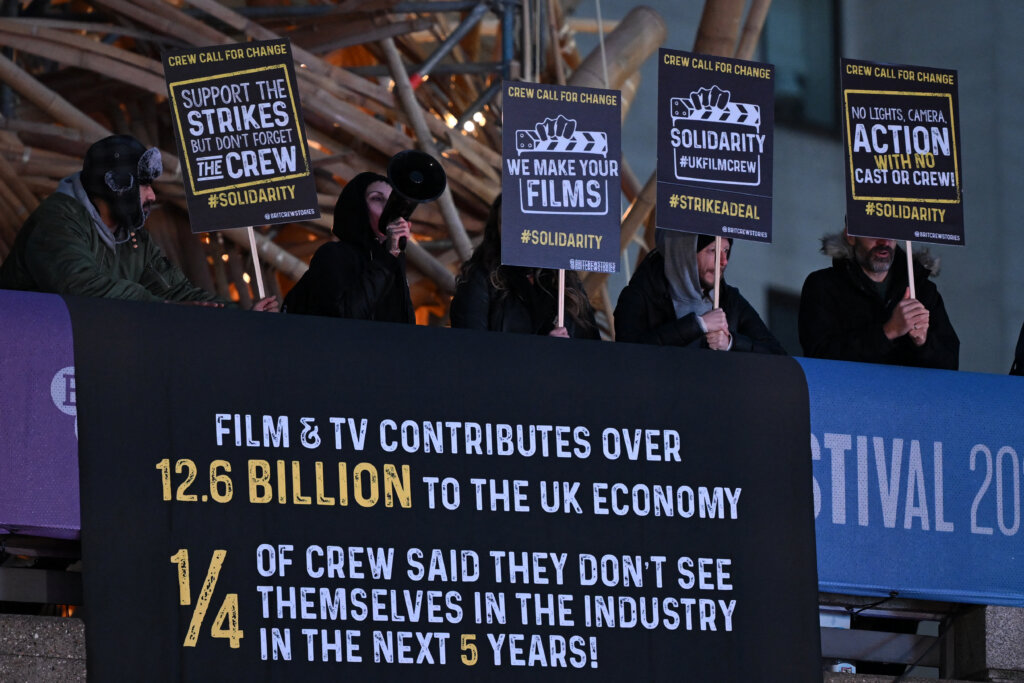
Not everyone is a fan of AI in the film industry. (Photo by JUSTIN TALLIS/AFP).
From AI in filmmaking to AI-generated films
While AI in filmmaking remains a concerning issue that needs to be handled delicately, AI-generated films are starting to gain traction. AI-generated films are films that use AI to create or enhance some or all of their content, such as images, animations, scripts, music, or editing.
Some examples of AI-generated films are:
- Sunspring: A short sci-fi film written entirely by an AI system called Benjamin, based on a corpus of sci-fi scripts. The film was screened at the Sci-Fi London Film Festival in 2023.
- The Frost: Considered the first AI-generated film in the world, The Frost is a 12-minute film in which every shot is generated by an image-making AI called DALL-E 2, based on a script written by a human. The film uses another AI tool called D-ID to animate the still images.
- PLSTC: A short film that uses an image-making AI called Midjourney to create surreal scenes of plastic-wrapped sea creatures. The film was part of the Runway AI Film Festival in New York in 2023.
- Given Again: A short film that uses a technology called NeRF (neural radiance fields) to turn 2D photos into 3D virtual objects, creating a dreamlike effect. The film was also part of the Runway AI Film Festival in 2023.
- Expanded Childhood: A short film that uses DALL-E 2 to extend the borders of old family photos, creating a nostalgic and surreal collage.
- Critterz: Produced in collaboration with OpenAI, Critterz is the first animated short film to exclusively feature visuals produced by Dall-E.
While these films are still in the early stages of showcasing the full capabilities of AI-generated films, they pose ethical, social, and artistic issues, such as the impact of AI on human creativity, the authenticity of AI-generated content, the ownership and rights of AI-created works, and the potential misuse or abuse of AI technology.
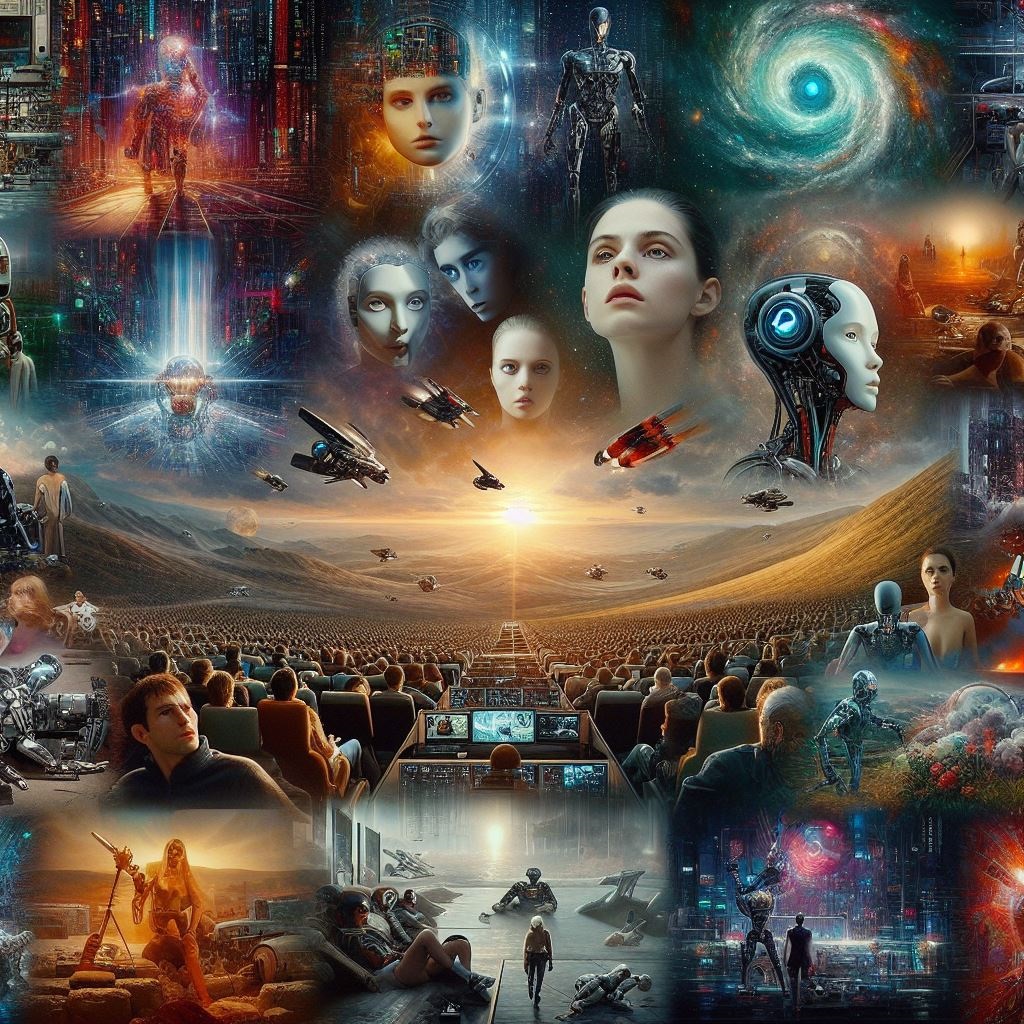
Is the world ready for AI-generated films? (Image generated by AI).
The world’s first feature-length AI-generated film
While AI-generated films are still on the road to perfection, India may soon release the world’s first feature-length AI-generated film. According to a report by SCMP, Intelliflicks Studios in the northern Indian city of Chandigarh will produce a feature-length AI-generated film.
The film, Maharaja in Denims, is based on a novel written in 2014 by Indian writer Khushwant Singh. Intelliflicks Studios is a joint venture between him and Gurdeep Singh Pall, a tech guru who was also the former corporate vice president at Microsoft overseeing business AI projects.
Despite being a feature-length AI-generated film, the script of Maharaja in Denims will still be written by a scriptwriter. Intelliflicks Studios recently released the first trailer for the film. The company also said that the film would cost only around a sixth of the actual production cost involving real actors and film crew.
Pall said human creativity would be blended with AI to generate digital sets and film shots, as well as render music and dialogue. The company also admitted that while the cost is cheap, there are challenges in making sure the technology can deliver what it really envisioned.
AI in Indian films is already taking shape in some movies. The report explained that filmmaker Guhan Senniappan plans to include a 2.5-minute AI sequence in his coming Tamil film, Weapon, while Shekhar Kapur had a script generated by AI for the sequel to his 1983 film, Masoom.
With new research and new AI models emerging rapidly, Intelliflicks Studios believes that AI-generated films will not only be produced faster but also could end up being better in the future.
READ MORE
- Safer Automation: How Sophic and Firmus Succeeded in Malaysia with MDEC’s Support
- Privilege granted, not gained: Intelligent authorization for enhanced infrastructure productivity
- Low-Code produces the Proof-of-Possibilities
- New Wearables Enable Staff to Work Faster and Safer
- Experts weigh in on Oracle’s departure from adland

